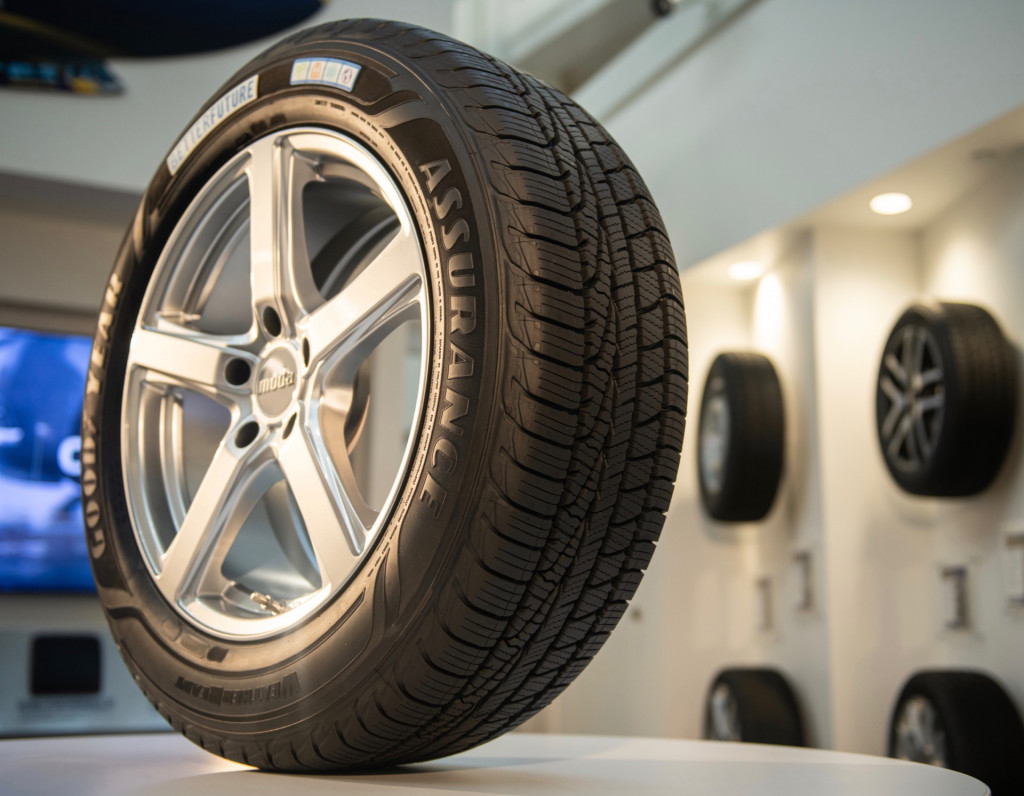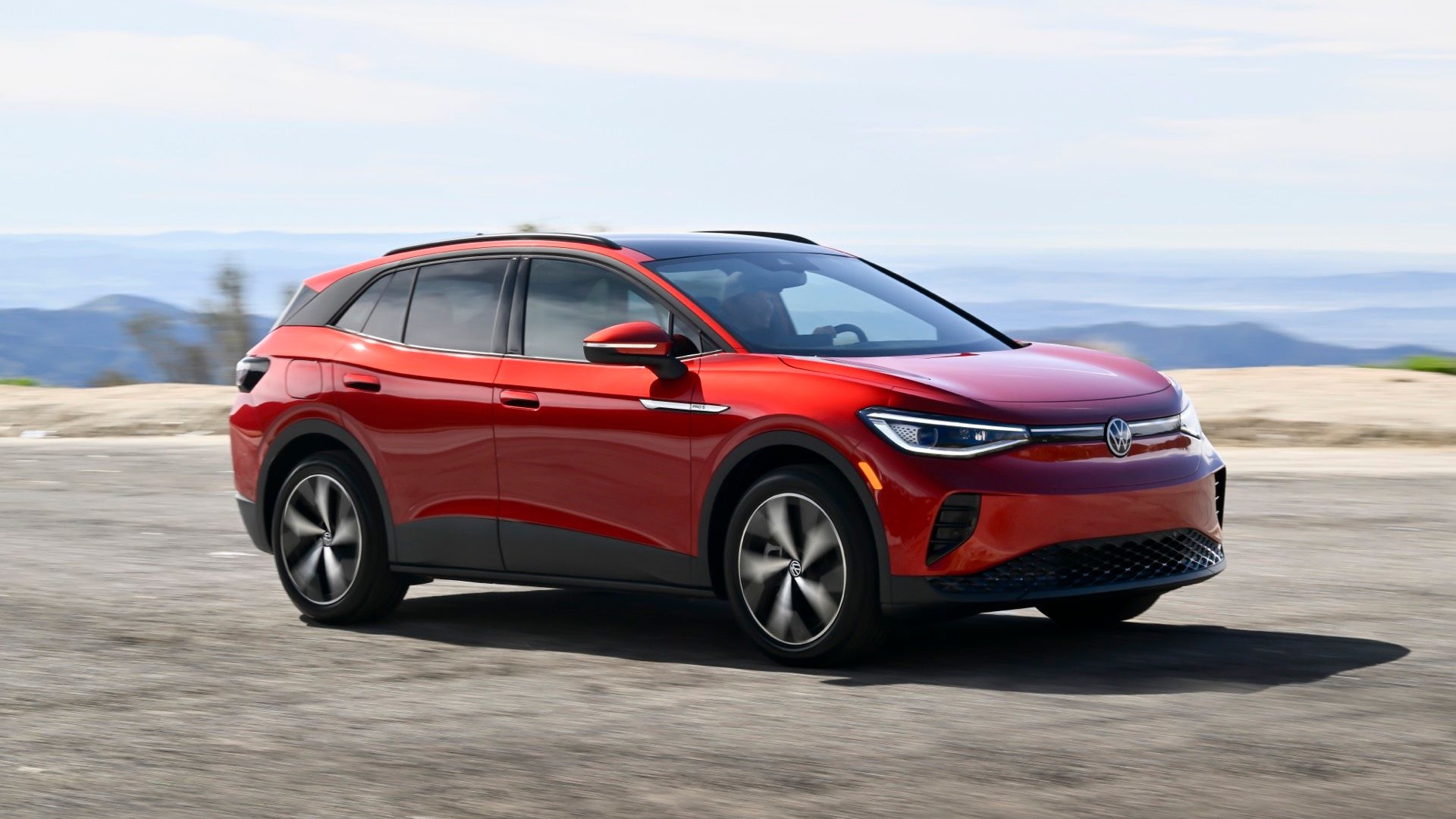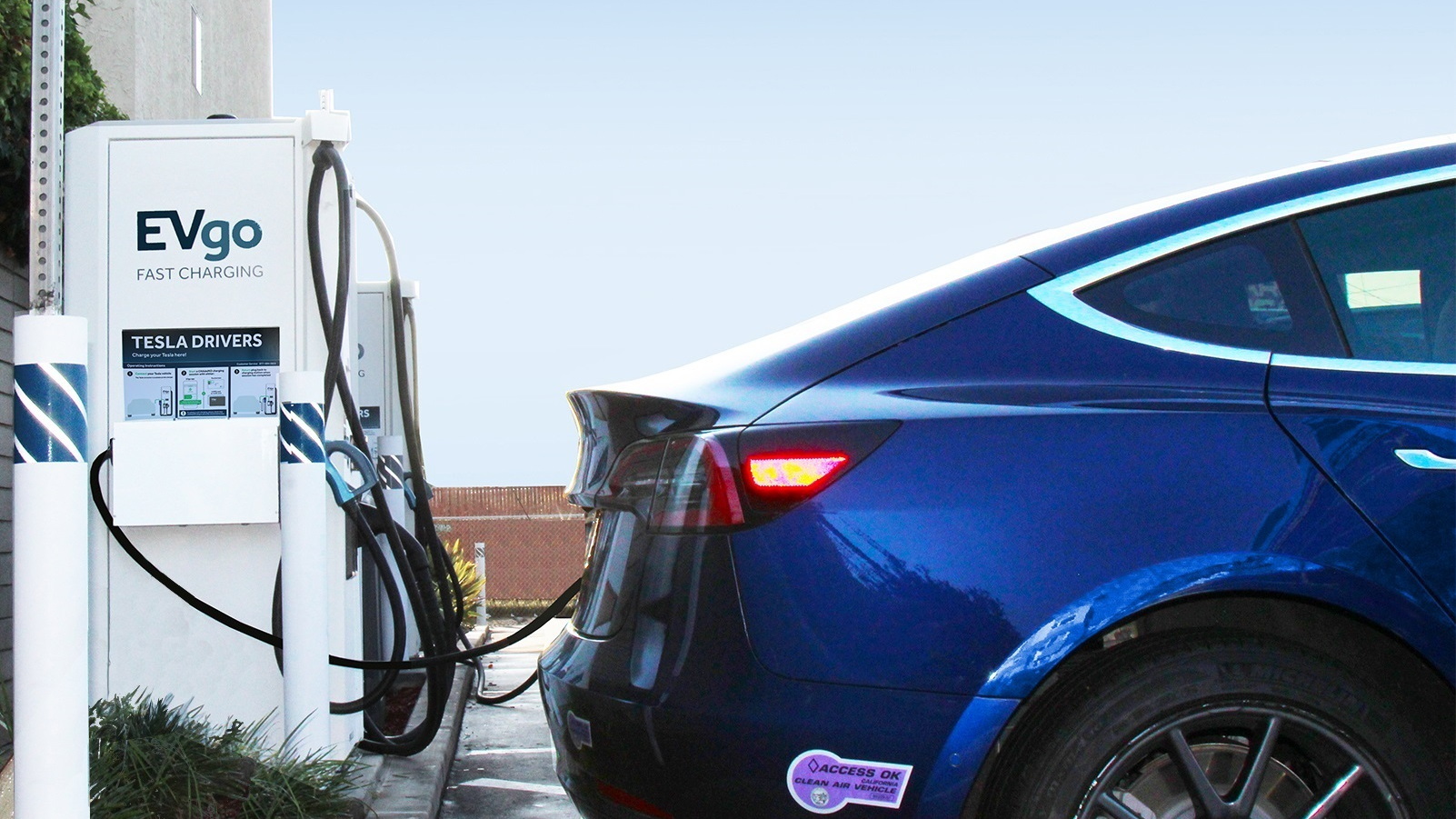Goodyear on Wednesday unveiled a tire made from 70% sustainable materials. It's a step toward the company's goal of making a tire from 100% sustainable materials by 2030.
While this tire isn't ready for production (Goodyear calls it a "demonstration tire"), it does show some of the materials Goodyear is investigating to cut petroleum use, as well as emissions from the production process.
The tire includes 13 sustainable materials—including soybean oil, rice husk ash silica, bio-based polymers, fabrics made from recycled plastic bottles, and renewable resins—across nine tire components, according to a Goodyear press release.
Some of the carbon blacks used in the tire also weren't made from burning oil, the traditional production process, which creates more pollution. The tire includes three carbon blacks produced from carbon dioxide, plant-based oil, and methane. These are more sustainable processes, Goodyear claims. The company also notes that methane could be replaced with "renewable natural gas" to further lower emissions.

Goodyear tire made from 70% sustainable material
Goodyear also recently announced that it will collaborate with chemical company Monolith on sustainable carbon black production. The Department of Energy approved a $1.04 billion loan to Monolith for that tech, which starts with natural gas and splits it into hydrogen gas—potentially to be used by fuel-cell vehicles—and carbon black.
Tire manufacturers have been experimenting with sustainable materials for some time. In 2009, Yokohama announced a tire made with orange peels as a way to reduce petroleum use. A decade later, Bridgestone announced plans to use recovered carbon black in large-scale manufacturing of new tires.
Goodyear has also tried to attack the problem from a different angle. Its 2020 ReCharge concept used fluid-filled capsules to regenerate tire treads, potentially extending the lifespan of tires. That tech is nowhere near production-ready, however.
It's also worth noting that all pollution from tires comes from manufacturing. Tire dust is a significant form of local air pollution that will remain an issue even after new vehicles go all-electric.












